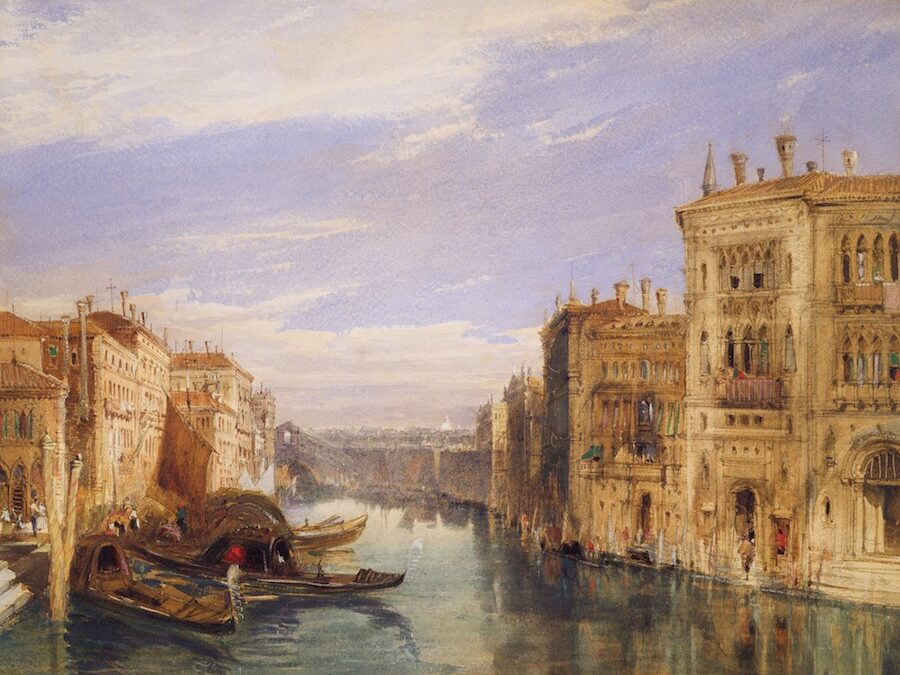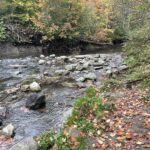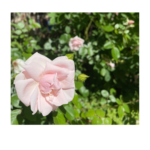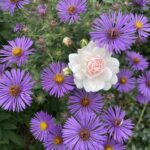I always write about the sea because, well, I just really love it. But today I was going over some of my old photos, from both Venice and back home in Sofia, Bulgaria, and started reminiscing about how much I love canals too. Particularly, how Venice was a love at first sight, of a love so deep from a time before time before time, and how I could even see myself living there. And then I remembered that canals have been a part of my life since childhood. And that canals are part of all of us – as the streams of consciousness that flow through our body and guide us forward towards our seas.
I grew up on a street named after a tsar. In a house with yellow walls, and an attic where I’d love to discover little treasures forgotten, tucked away in chests or boxes. I grew up beside a canal, not a grand one like in Venice, but a waterway nonetheless. There, I dreamt that someday I’d live by the sea – because even by the canal, I always held the sea. And I’d write my diaries, in the way of water, my canal diaries, with dreams within them that sometimes I still look at to think of more dreams. There, I’d fall in and out of love; there, I’d play and imagine and jump across the rooftops of the other houses, to then climb some cherry and apple trees. There, was also a fence. Perhaps sometimes God comes to us disguised as rust – unlinking the chain fences that used to separate us from the things we really longed for yet didn’t know how to find. And we unlock new worlds.
Have you witnessed water actually begin?
Like when a pipe bursts. Or when an axe hits the wild ground and clean water springs from the earth. Pure. True.
It’s perfect.
And it’s as if we’ve opened a desert.
In his book “The Secret Knowledge of Water”, Craig Childs describes one such moment when he discovered a spring beneath a rock in the desert. Growing up, his father would talk about the wild things a lot and this led Childs to believe that everything worthy out there was a secret other people were not to know – it was beyond humans.
The water he eventually accessed that day, accidently with an axe was, as he described it – perfect. It was true. He opened a hole, like a gateway, and let his eyes fall into the secrets of its wisdom. At that instant, it all became the ultimate intimate act. Perhaps sometimes we all crawl on our bellies looking to find such secrets – looking for such purity.
Childs returned to the spring he uncovered many times throughout the years, lifting the rock as carefully as opening a music box. He’d kneel to drink the underground stream. And as the water would slurp off the surface, with some mud and bits of moss pasted to his face as he drank it, he recalls that he wasn’t even fully aware of what he was really learning in those moments.
Childs writes: “In fact, I hadn’t learned anything, I simply knew, however wrong I may still be, that everything must be perfect, like this secret, like the euphonious voice of moving water. Then, I’d put the rock back and walk out of the canyon, my future decided.”
Here is a curious word: mudlarking. A mudlark, as described in the dictionary, is someone who searches the mud near rivers seeking to find valuable or interesting objects.
Years ago, when the non-tidal Amstel River in Amsterdam was drained to make way for a new train line, archaeologists recorded almost 700,000 objects. Buttons fallen from coats and dresses, rings that had slipped from fingers, and many other personal possessions of ordinary people, with each small piece telling its own story – like a key to another world – a link to a life. And I have often found that it is precisely the tiniest objects in life that can tell some of the greatest stories.

Sofia, Bulgaria by Tinka Marinova
The tides reveal the shorelines, and in the stretches something precious can be found. Riches, treasures, changing and floating away, and then back again. These riches belong only to those who cared enough to notice them, to need them and to claim them, like the homeless, the animals, the mudlarks, and the seekers.
Grass grows on the sides of cobblestone roads and the city canals, but it is often stalled because of pollution from the cars. It may not be as green, or soft; and the trunks of trees may be scarred by the battles of a living there. Branches and leaves sometimes carry ribbons of plastic and, well, rubbish.
It is unsettling. Unsettling as perhaps we sometimes are too, seeing the temporal positions of humanity and how there are times we can barely hold ourselves amidst the changes in the external environments. We can feel defeated in a horizon, abandoned in our faith, slowly alone like a stone watching the mud dance near the canal. We can feel lost.
In these times remember: mudlarking.
Like a ring, somewhere, we’re still shining.
The human is one of the most vulnerable living forms of creation. Around our body where we live is a kind of openness and emptiness – where there is no frame to fully protect us. We are vulnerable to the external, yes, but also from the within. Our minds can create many thoughts and beliefs, hearts can hurt, and we can feel lost. It is important to have self-compassion so that we don’t turn against ourselves, and keep the purity of our true essence by keeping our spaces clean.
When we are compassionate towards ourselves, we trust in our soul and let it guide us along the unique emotional and physical wild lands.
Because it is our soul, this quiet voice within our core, that knows the maps and geographies of our destiny better than we think we do.
Back in the cities, the canals and the cobblestones, no matter how old or crumbling, continue to hold us. Wild things continue to burst despite the concrete and the boundaries, ready to claim their aliveness, beauty and vitality.
And there is always a flower, like a beautiful rose on the busy sidewalk, that blooms in her glory – and her scent is so strong, so pure, so true, that everything around her smells of a fairy forest.
The canals will change and change again. Metals will sink to the bottoms, plastic will be cleaned, edges will be tidied, graffiti will be removed only for new ones to be painted in the late nights, sparrows will find shelter during thunderstorms, boats will cross with merchants looking towards the horizons of their new journeys, and lovers will walk the bridges under the starry skies.
Sometimes we are found by an outside landscape that becomes like a perfect correlation to our inner lives – a fluid space, moving, where we can allow ourselves our own changes. A place which holds our world of strangeness, of memory, of desire to be of both wild and of lines – ever moving us with its tides, running through the walls of our faithful bodies. A place where we can simultaneously be held on to and depart from, where we can resist and surrender like eternal lovers do, and then mingle our waters together as we move, inevitably, to be consumed by the arms of our sea.

Venice, Italy by Lubomira Kourteva
Travelling along the canals of our life, as if travelling along the circling staircases of a house, we carry ourselves as little rituals of remembering, connecting and rediscovering. We become the witnesses to the way the light changes the surfaces of water, of how the tides reveal the hidden corners of our psyches, and of the memories uncovered in the most expected of places. We see the beauty of the walls and the ordinary gestures that ultimately become god-like things, because they’ve held us, and because we’ve shared them with our loved ones.
It might seem like the same journey each time, along the canals or the staircases, thinking that nothing changes or that it’s a bit too ordinary, but that’s not true. The most meaningful journeys are sometimes the ones that repeat, like a melody.
Love too is a melody, and each melody needs repeating.
And in these circlings, we discover new ways in the movings of water; we discover something we hadn’t noticed before because it was us that was changing all along. And then we find the extraordinary in our stories. The little treasures with their grand stories.
Like Amsterdam or Venice canals, or the smaller one in Sofia near my childhood’s house, we are sometimes riverwalking. Some time is controlled by the ebbs and flows, consequently covering and uncovering our tender shores. Sometimes we can allow its access early in the mornings or evenings, and we can stay gently in some ultimate intimacy. We learn to read the waters, catch the objects as they turn, and even treasure them, for they hold important keys to guide us forward. Tides commit to our movements, and sometimes predict futures, and sometimes record pasts.
In the complexities of its simplicity, other waters are shaping, the canals of consciousness and love making within us. Like circling stairways, the views and our perspectives shift as well. And even if confined by walls, of stone, or flesh, it is always moving in mysterious new ways.
And when the water pulls, inward and inland, offering us access to these seemingly lost or forgotten contents, like rings or buttons, we reveal the stories of cities – and of ourselves. Of how far we’ve gone and come back. Of how much we’ve impacted people along our way, leaving stars in their hearts and in their hands. And of how many more beautiful secrets exist, waiting to be found, in the most unexpected of places – places, where we didn’t even know to look yet.
And it’s perfect.

Venice, Italy by Lubomira Kourteva

For more of my writings, browse through my Art of Love.
If you wish to support me and my work, you may do so by sharing it or donate here. For personal readings with me, you may visit my Offerings.
Your support means so much to me! Thank you wholeheartedly!
Cover Art by Birmingham Museums Trust, Source Unsplash.




